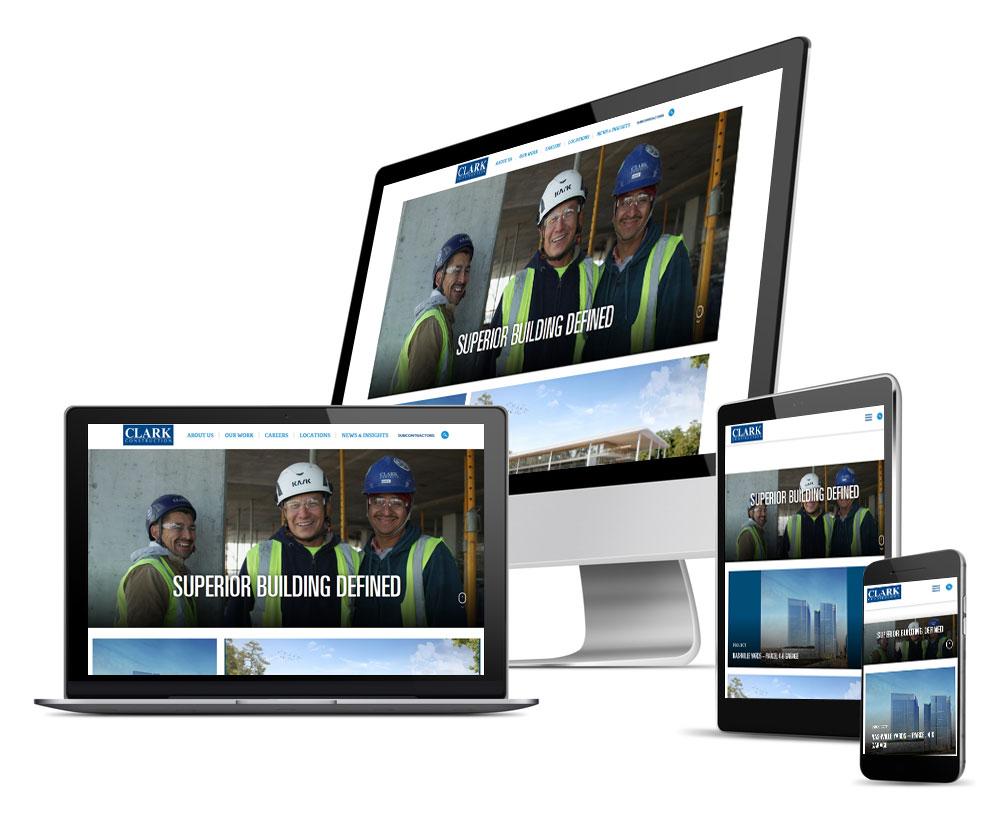5 Simple Ways To Convince Skeptical Prospects to Trust Your AEC Firm
If you’re a successful firm, or simply one that’s on its way, then you already understand that trust is the building block that your business stands on. It might be an easy realization to make—after all, you can trick a few clients to work with you, but if you violate their trust you’ll lose them just as quickly. Soon enough, word will travel around and you’ll never see a prospective client again. You’ve already done the work to cultivate and retain your clients’ trust at the local level. What else is there?
Do You Have a Credible Online Presence?
This day and age, it’s not as simple as being a great brick and mortar firm—you need an online presence, and building trust within your online brand is more important than ever. Many clients are skeptical of doing business online, but the benefits of an online presence not only boost your service radius but saves you time and money. Luckily, there are a few simple principles to building and sustaining a credible online brand.
1. Feature a Review System & Make it Real Time

It’s easier than ever to build your website on a content management system. And with systems like WordPress, anyone can learn to build a feature-rich website with just a few clicks of a button. If you’re truly techno-phobic, you can easily hire someone to build a website for you.
One of the most useful tools a content management system affords you is an online rating system. As a business, you should own this feature and display it prominently on your website. Not only that—be bold enough to display reviews in real time. Empower your clients while showing transparency and credibility. It’s a no-lose situation if you’ve already done the work of providing outstanding customer service.
2. Inject Your Website with Personality, Real & Simulated
 Just because it’s a website doesn’t mean it doesn’t require some kind of human element. You’re a firm that’s known for your customer service, so leaving that component out of your digital brand would be a dreadful misstep. Your website should have tools to allow visitors to engage with your team. If you can afford the gesture, connect your employees with a live chat support system so they can greet web visitors while they’re browsing your page. After hours, those same potential clients can be connected to an automated question and answer system that mimics a human.
Just because it’s a website doesn’t mean it doesn’t require some kind of human element. You’re a firm that’s known for your customer service, so leaving that component out of your digital brand would be a dreadful misstep. Your website should have tools to allow visitors to engage with your team. If you can afford the gesture, connect your employees with a live chat support system so they can greet web visitors while they’re browsing your page. After hours, those same potential clients can be connected to an automated question and answer system that mimics a human.
Above all—ensure your website comes across as personable and intuitive. You want it to feel like the front desk of your actual office. A client will want to feel welcomed, have someone to ask questions to, and know they’re in the right place.
3. Make Your Website a Support Resource
 The greatest facet of having a website is that you can instill into it your company culture and personality—and it never sleeps! If you’ve taken the trouble of injecting the unique character of your firm’s brand, make sure it also serves as a practical after-hours tool for clients.
The greatest facet of having a website is that you can instill into it your company culture and personality—and it never sleeps! If you’ve taken the trouble of injecting the unique character of your firm’s brand, make sure it also serves as a practical after-hours tool for clients.
Beyond that, use your website and its associated social media as a form of support outreach. It’s never been easier to connect to your customers and clients across multiple platforms. These days—there’s no such thing as a complaint box—every grievance you receive online is public—and it’s up to you to use your resources in a way that makes each customer obstacle into a positive and public experience.
4. Promise Security & Deliver On it

You wouldn’t want to give a customer the impression that your firm wasn’t secure, or worse yet, that it behaved wantonly with customer data. Just like how you wouldn’t keep customers’ information hanging around in plain sight at your firm, you wouldn’t do the same thing with their information online.
Your online presence should advocate for customer privacy and security. Ensure you’re doing all that you can to safeguard customer information, and share your safeguards in a public manner, be it a security badge or a certificate you can display on your page. Physical displays of security calm the nerves of skeptical clients and fortify your credibility as a company that cares about privacy and security.
5. Use Your Online Presence for Robust & Thoughtful Communication

Websites are a great way of providing new and important information to customers. You can easily offer your clients the ability to subscribe to a newsletter. Plus, your blog and social media act as two more significant mediums for important or exciting news. Moreover, sending periodic communications shows that you’re an active company that is always exploring, innovating, and learning.
It’s best to keep communication simple and brief. And never inundate your clients with too many announcements. The less you send, the more potent your messages will be.
Trust is a Multi-Step, Multi-Faceted Process that Never Ends
At the end of the day, you want to ensure your online brand perfectly embodies you’re offline one. You’ve found success by doing what you do, the way you do it. Your “digital trust” level is just as important as the trust you’ve built offline—so use the tools that you have at your disposal to provide your customers with meaningful interactions that reflect your brand. And don’t be afraid to use your digital presence as a platform for supporting and communicating with your clients.
Most importantly—provide your customers with peace of mind that anything they do with you online is secure and safe. Your customers want to trust you—so if you ensure your firm follows these principles, you’ll have a credible online presence in no time at all.

